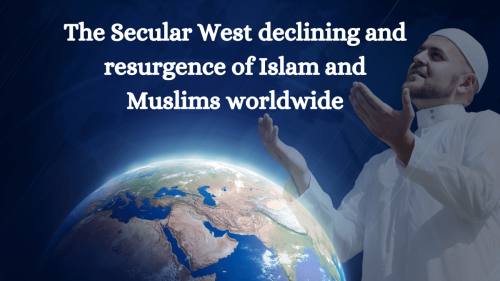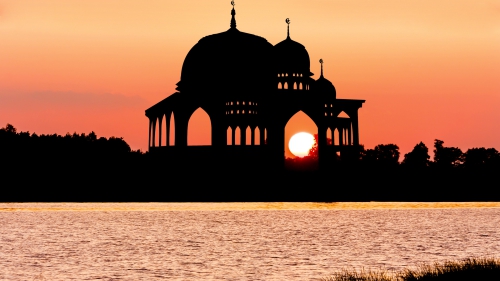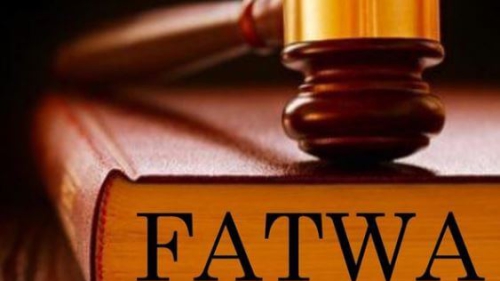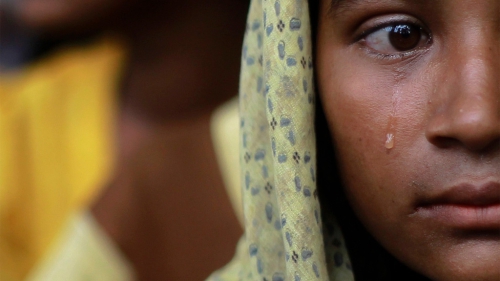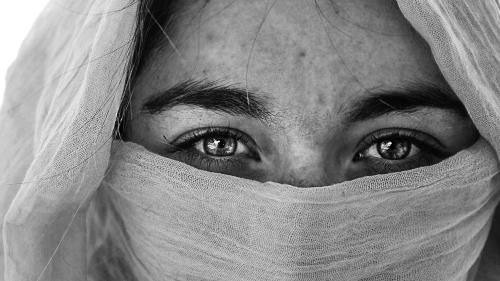Why Shariah?
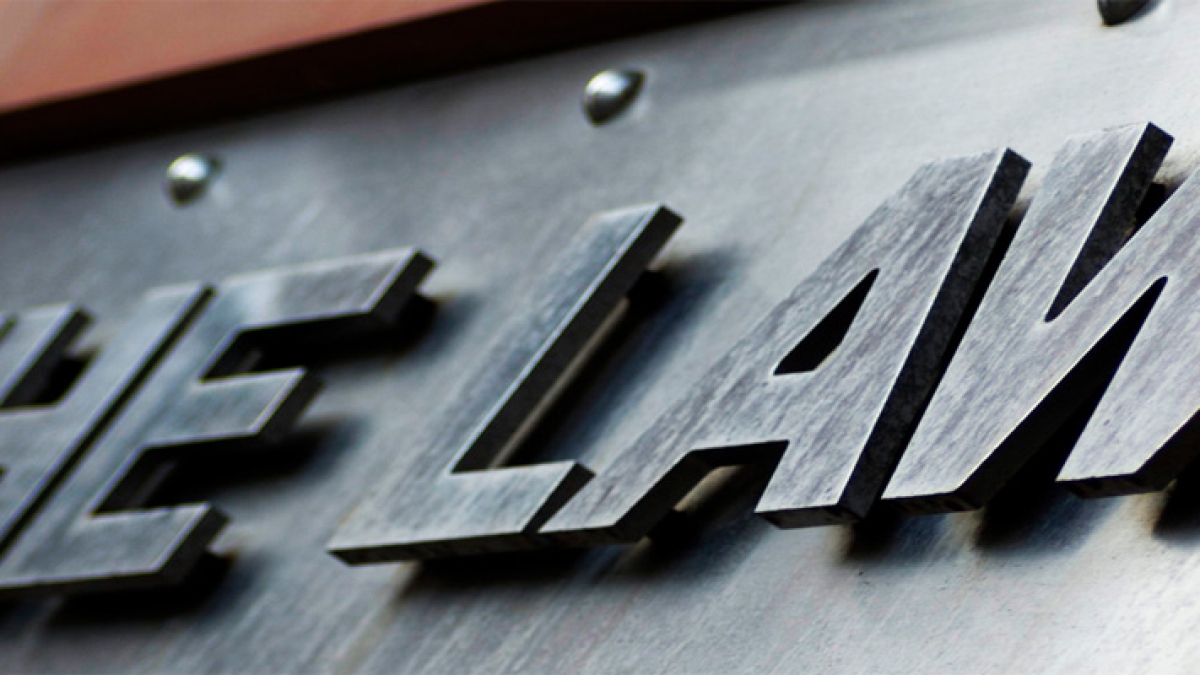
Last month, Rowan Williams, the archbishop of Canterbury, gave a nuanced, scholarly lecture in London about whether the British legal system should allow non-Christian courts to decide certain matters of family law. Britain has no constitutional separation of church and state. The archbishop noted that "the law of the Church of England is the law of the land" there; indeed, ecclesiastical courts that once handled marriage and divorce are still integrated into the British legal system, deciding matters of church property and doctrine. His tentative suggestion was that, subject to the agreement of all parties and the strict requirement of protecting equal rights for women, it might be a good idea to consider allowing Islamic and Orthodox Jewish courts to handle marriage and divorce.
The practical application of Shariah in most Muslim countries (as here, in this Egyptian courtroom) is in matters of family law.
Then all hell broke loose. From politicians across the spectrum to senior church figures and the ubiquitous British tabloids came calls for the leader of the world's second largest Christian denomination to issue a retraction or even resign. Williams has spent the last couple of years trying to hold together the global Anglican Communion in the face of continuing controversies about ordaining gay priests and recognizing same-sex marriages. Yet little in that contentious battle subjected him to the kind of outcry that his reference to religious courts unleashed. Needless to say, the outrage was not occasioned by Williams's mention of Orthodox Jewish law. For the purposes of public discussion, it was the word "Shariah" that was radioactive.
In some sense, the outrage about according a degree of official status to Shariah in a Western country should come as no surprise. No legal system has ever had worse press. To many, the word "Shariah" conjures horrors of hands cut off, adulterers stoned and women oppressed. By contrast, who today remembers that the much-loved English common law called for execution as punishment for hundreds of crimes, including theft of any object worth five shillings or more? How many know that until the 18th century, the laws of most European countries authorized torture as an official component of the criminal-justice system? As for sexism, the common law long denied married women any property rights or indeed legal personality apart from their husbands. When the British applied their law to Muslims in place of Shariah, as they did in some colonies, the result was to strip married women of the property that Islamic law had always granted them - hardly progress toward equality of the sexes.
In fact, for most of its history, Islamic law offered the most liberal and humane legal principles available anywhere in the world. Today, when we invoke the harsh punishments prescribed by Shariah for a handful of offenses, we rarely acknowledge the high standards of proof necessary for their implementation. Before an adultery conviction can typically be obtained, for example, the accused must confess four times or four adult male witnesses of good character must testify that they directly observed the sex act. The extremes of our own legal system - like life sentences for relatively minor drug crimes, in some cases - are routinely ignored. We neglect to mention the recent vintage of our tentative improvements in family law. It sometimes seems as if we need Shariah as Westerners have long needed Islam: as a canvas on which to project our ideas of the horrible, and as a foil to make us look good.
In the Muslim world, on the other hand, the reputation of Shariah has undergone an extraordinary revival in recent years. A century ago, forward-looking Muslims thought of Shariah as outdated, in need of reform or maybe abandonment. Today, 66 percent of Egyptians, 60 percent of Pakistanis and 54 percent of Jordanians say that Shariah should be the only source of legislation in their countries. Islamist political parties, like those associated with the transnational Muslim Brotherhood, make the adoption of Shariah the most prominent plank in their political platforms. And the message resonates. Wherever Islamists have been allowed to run for office in Arabic-speaking countries, they have tended to win almost as many seats as the governments have let them contest. The Islamist movement in its various incarnations - from moderate to radical - is easily the fastest growing and most vital in the Muslim world; the return to Shariah is its calling card.
How is it that what so many Westerners see as the most unappealing and premodern aspect of Islam is, to many Muslims, the vibrant, attractive core of a global movement of Islamic revival? The explanation surely must go beyond the oversimplified assumption that Muslims want to use Shariah to reverse feminism and control women - especially since large numbers of women support the Islamists in general and the ideal of Shariah in particular.
One reason for the divergence between Western and Muslim views of Shariah is that we are not all using the word to mean the same thing. Although it is commonplace to use the word "Shariah" and the phrase "Islamic law" interchangeably, this prosaic English translation does not capture the full set of associations that the term "Shariah" conjures for the believer. Shariah, properly understood, is not just a set of legal rules. To believing Muslims, it is something deeper and higher, infused with moral and metaphysical purpose. At its core, Shariah represents the idea that all human beings - and all human governments - are subject to justice under the law.
In fact, "Shariah" is not the word traditionally used in Arabic to refer to the processes of Islamic legal reasoning or the rulings produced through it: that word is fiqh, meaning something like Islamic jurisprudence. The word "Shariah" connotes a connection to the divine, a set of unchanging beliefs and principles that order life in accordance with God's will. Westerners typically imagine that Shariah advocates simply want to use the Koran as their legal code. But the reality is much more complicated. Islamist politicians tend to be very vague about exactly what it would mean for Shariah to be the source for the law of the land - and with good reason, because just adopting such a principle would not determine how the legal system would actually operate.
Shariah is best understood as a kind of higher law, albeit one that includes some specific, worldly commands. All Muslims would agree, for example, that it prohibits lending money at interest - though not investments in which risks and returns are shared; and the ban on Muslims drinking alcohol is an example of an unequivocal ritual prohibition, even for liberal interpreters of the faith. Some rules associated with Shariah are undoubtedly old-fashioned and harsh. Men and women are treated unequally, for example, by making it hard for women to initiate divorce without forfeiting alimony. The prohibition on sodomy, though historically often unenforced, makes recognition of same-sex relationships difficult to contemplate. But Shariah also prohibits bribery or special favors in court. It demands equal treatment for rich and poor. It condemns the vigilante-style honor killings that still occur in some Middle Eastern countries. And it protects everyone's property - including women's - from being taken from them. Unlike in Iran, where wearing a head scarf is legally mandated and enforced by special religious police, the Islamist view in most other Muslim countries is that the head scarf is one way of implementing the religious duty to dress modestly - a desirable social norm, not an enforceable legal rule. And mandating capital punishment for apostasy is not on the agenda of most elected Islamists. For many Muslims today, living in corrupt autocracies, the call for Shariah is not a call for sexism, obscurantism or savage punishment but for an Islamic version of what the West considers its most prized principle of political justice: the rule of law.
The Sway of the Scholars
To understand Shariah's deep appeal, we need to ask a crucial question that is rarely addressed in the West: What, in fact, is the system of Islamic law? In his lifetime, the Prophet Muhammad was both the religious and the political leader of the community of Muslim believers. His revelation, the Koran, contained some laws, pertaining especially to ritual matters and inheritance; but it was not primarily a legal book and did not include a lengthy legal code of the kind that can be found in parts of the Hebrew Bible. When the first generation of believers needed guidance on a subject that was not addressed by revelation, they went directly to Muhammad. He either answered of his own accord or, if he was unsure, awaited divine guidance in the form of a new revelation.
With the death of Muhammad, divine revelation to the Muslim community stopped. The role of the political-religious leader passed to a series of caliphs (Arabic for "substitute") who stood in the prophet's stead. That left the caliph in a tricky position when it came to resolving difficult legal matters. The caliph possessed Muhammad's authority but not his access to revelation. It also left the community in something of a bind. If the Koran did not speak clearly to a particular question, how was the law to be determined?
The answer that developed over the first couple of centuries of Islam was that the Koran could be supplemented by reference to the prophet's life - his sunna, his path. (The word "sunna" is the source of the designation Sunni - one who follows the prophet's path.) His actions and words were captured in an oral tradition, beginning presumably with a person who witnessed the action or statement firsthand. Accurate reports had to be distinguished from false ones. But of course even a trustworthy report on a particular situation could not directly resolve most new legal problems that arose later. To address such problems, it was necessary to reason by analogy from one situation to another. There was also the possibility that a communal consensus existed on what to do under particular circumstances, and that, too, was thought to have substantial weight.
This fourfold combination - the Koran, the path of the prophet as captured in the collections of reports, analogical reasoning and consensus - amounted to a basis for a legal system. But who would be able to say how these four factors fit together? Indeed, who had the authority to say that these factors and not others formed the sources of the law? The first four caliphs, who knew the prophet personally, might have been able to make this claim for themselves. But after them, the caliphs were faced with a growing group of specialists who asserted that they, collectively, could ascertain the law from the available sources. This self-appointed group came to be known as the scholars - and over the course of a few generations, they got the caliphs to acknowledge them as the guardians of the law. By interpreting a law that originated with God, they gained control over the legal system as it actually existed. That made them, and not the caliphs, into "the heirs of the prophets."
Among the Sunnis, this model took effect very early and persisted until modern times. For the Shiites, who believe that the succession of power followed the prophet's lineage, the prophet had several successors who claimed extraordinary divine authority. Once they were gone, however, the Shiite scholars came to occupy a role not unlike that of their Sunni counterparts.
Under the constitutional theory that the scholars developed to explain the division of labor in the Islamic state, the caliph had paramount responsibility to fulfill the divine injunction to "command the right and prohibit the wrong." But this was not a task he could accomplish on his own. It required him to delegate responsibility to scholarly judges, who would apply God's law as they interpreted it. The caliph could promote or fire them as he wished, but he could not dictate legal results: judicial authority came from the caliph, but the law came from the scholars.
The caliphs - and eventually the sultans who came to rule once the caliphate lost most of its worldly influence - still had plenty of power. They handled foreign affairs more or less at their discretion. And they could also issue what were effectively administrative regulations - provided these regulations did not contradict what the scholars said Shariah required. The regulations addressed areas where Shariah was silent. They also enabled the state to regulate social conduct without having to put every case before the courts, where convictions would often be impossible to obtain because of the strict standards of proof required for punishment. As a result of these regulations, many legal matters (perhaps most) fell outside the rules given specifically by Shariah.
The upshot is that the system of Islamic law as it came to exist allowed a great deal of leeway. That is why today's advocates of Shariah as the source of law are not actually recommending the adoption of a comprehensive legal code derived from or dictated by Shariah - because nothing so comprehensive has ever existed in Islamic history. To the Islamist politicians who advocate it or for the public that supports it, Shariah generally means something else. It means establishing a legal system in which God's law sets the ground rules, authorizing and validating everyday laws passed by an elected legislature. In other words, for them, Shariah is expected to function as something like a modern constitution.
The Rights of Humans and the Rights of God
So in contemporary Islamic politics, the call for Shariah does not only or primarily mean mandating the veiling of women or the use of corporal punishment - it has an essential constitutional dimension as well. But what is the particular appeal of placing Shariah above ordinary law?
The answer lies in a little-remarked feature of traditional Islamic government: that a state under Shariah was, for more than a thousand years, subject to a version of the rule of law. And as a rule-of-law government, the traditional Islamic state had an advantage that has been lost in the dictatorships and autocratic monarchies that have governed so much of the Muslim world for the last century. Islamic government was legitimate, in the dual sense that it generally respected the individual legal rights of its subjects and was seen by them as doing so. These individual legal rights, known as "the rights of humans" (in contrast to "the rights of God" to such things as ritual obedience), included basic entitlements to life, property and legal process - the protections from arbitrary government oppression sought by people all over the world for centuries.
Noah Feldman, a contributing writer for the magazine, is a law professor at Harvard University and an adjunct senior fellow at the Council on Foreign Relations. This essay is adapted from his book "The Fall and Rise of the Islamic State," which will be published later this month.
Topics: Islamic Law (Sharia), Women
Views:9185
Related Suggestions
Well - if Islam is put on a gorilla, it will surely smell like a decent, beautiful human being provided it understands it and follows its principles.
That being said, you confused me with your comments yet again! You try to portrayed Islam as a violent religion, which it is not BTW, yet you said at the end of your comment that it is not the fault of Islam. My fear is that you have not studied Islam at all; you know very little about it. It was evident from your remarks that you have posted so far. In one of your comments you claimed that Islam professes Puhammad(pbuh) as the only prophet of God. That alone tells us the level of your knowledge abut Islam. I am not insulting you! Trust me on that! I am merely trying to point out your weakness. Without at least the basic knowledge, you can't understand the beauty of Islam.
I pray that you come to see the truth.
You constantly try to portray our Prophet(pbuh) as the messenger of devil. Many people, of them many are so called scholars, tried to portray him as such throughout history. But they all have failed. As one of the scholar of the West wrote that calling Muhammad(pbuh) an false prophet raises more difficulty than it solves.
Take care!
Satan knows that he is defeated (from the time that Messiah our Prince was cut off). Now he can not come teaching the believers any new doctrine. He is desperate in trying to turn away the fire with which he burns. Therefore he appears often as the spirit of revival or the teacher and interpreter of the Holy Scriptures. Knowing that he is defeated, he seeks his place in which he was defeated, to abide in the assembly of worshippers like the Most High, injecting his rules (Sharia) at par with the Laws of God. And thus, where he did not get a toehold, he wants to set his throne!!!
He is let loose for a while to gather the tribes of all nations against the city of God and them that dwell therein, for his ambition is nothing less than ruling over the saints. There is judgment in store for those persisting vehemently with this demand creating separate identity by denying God's Order. Fire from heaven will consume the adherents that advocate Sharia in the foreign lands. Therefore, please do not be ignited by the jealous flame of the ungodly Muslim tyrants to rule the habitation of believers with Sharia. (The problem is not with Muslim or Islam. If Muslim or Islam as clean garment is put on the body of a gorilla, it smells that gorilla. It is therefore a spiritual exercise and acceptance or not depends on which spirit is taking up the cause). Shalom.
Good to hear from you guys. Hope you are doing well.
Ok - my brother Imran definitely was not trying to justify the injustice that goes on in the Muslim countries. There is no denying the fact that our inability to tenaciously hold on to the Islamic principles has cultivated many evils. Br. Imran was simply trying to point out the double-standard that many of you religiously apply when it comes Islam and Muslims.
You just proved that fact by your comments. So, it is ok to kill innocent civilians during war time using Napalm, agent orange? You probably also justify the use of Atom bomb against so many men, women, and children in Hiroshima and Nagasaki. I hope I am wrong. And killing of so many Iraqi civilians are well-known.
Those who committed these atrocities always justified them by saying it will rid the world of greater evil. Really? If you hold this "End justifies the means" tenet to be true, then
shouldn't you also support the terrorists who try to reach their goal by creating fear in a society? I don't think any of you in right mind will do so.
Also, every community has its evils, its immoralities. In some American churches, children were hung from the ceiling and then beaten severely. There are many other examples of atrocities in all communities. I don't see any of you voicing your opinion against those.
Islam does not allow us to kill innocent civilians, let alone children, even at war time! It harshly condemns all injustice in whatever form they may exist in. Thought I will just mention that.
Take care of yourselves!
Think of it in terms of who has the better system of civilization. Both Muslims and the West would, of course, like to think themselves superior, but the real voting is done by immigration. Take a look at who is moving where, and you can quickly see that Muslims 'know' the West to have the superior way of life on some level. Westerners know this as well, and are not keen on importing the laws of a lesser civilization.
The obvious rebuttal will be that Muslims move to the West for jobs, and other various reasons, but, of course, that is all part of what makes the West quantitatively 'better'.
If Shariah law was *really* a 'make or break' question, Muslims would never move to non-Shariah country.
Also, historical comparisons of Shariah vs. historical law in the West are ludicrous. A better comparison would be current slavery laws in the West with those same laws in Muslim Africa.
Finally, the concept of freedom of religion in the West is *not* the same as freedom of foreign laws.
Unfortunately most of us (muslims), may be due the concentration of; as H.A use to put it freedom fries and coffee (this time not booze) hope H.A would'nt mine (a laugh)..we tend to separate the two (shari'a and Islam) thereby falling into the trap of the 'secularists'. The west (especially USA) has suceeded into dividing the muslims into categories, the fundamentalists-those who believe in the fundamentals of the religion, the traditionalists-those even though they believe in the fundamentals but would like to chip in some cultural (innovations) aspects into the pure teachings of Islam, and the modernists (the hypocrates) who compeletely deviated from the main teachings and in reality bring about a whole new concept of the religion other than the one (of course the true Islam), we inherited from the prophet (SAW) and his companions.
The unfortunate scenario that exists now is that the fundmentalists those who truely understand and practice the religion, are in the minority. So how do we move forward? The big task now on this silent minority is to go back to basics back to grassroots and begin a fresh da'wah to both the 'muslims' and the non-muslims which most of us are doing, Alhamdulil-Allah, but more efforts need to be exerted if we are to achieved our objective- that of establishing a community where judgement is done only by Qalal-Allah and Qalal-rasulul-Allah. The task is enormous but it can be done!
May Allah continue to guide us to that path that is straight unto Him.
Allow me to quote your statement "The irony of it all is that during WWII the Catholic Church supported Hitler. In recent times the church has covered up crimes against innocent children. Today people abuse drugs and alcohol and support deviant lifestyles and churches are silent. These all are things which Islam speaks out against". This is logically correct being sustained by ground realities.
The Church indeed is snoring, not seeing the filths and scum being dropped on her body by the gays and lesbians, which uncle logic views with favor and sympathy, and sorceries practiced too close to her. Slumber in the eyes, dullness in hearing, desiring for comfort and living carelessly in pleasure in the enemy realm is the general condition of the Christian Church at the moment. We'd really appreciate you watchmen sounding alarm to warn of the danger and waking us up to our duty.
Hitler was a good man. He was misguided by the city of central religion like one of the inspired suicide bombers of our day. Perhaps he did all to please religion against his own conscience. This is a lesson that we should not burn to the fire of ummas from the mosques as our souls are not means to serve their desires. The world in that manner is drunken and misguided by the bosses from headquarters of central religions. It is morally wrong to call the Catholic Church "Christian" because they defy the testimony to earn "Christian" title by struggling against it. The real Christians are not those who affiliate faith with Rome but those born again into Christian conviction by the Spirit of God.
I remain hopeful for peace. Shalom.
You write "Re: Uncle Logic made some very strong observations including mentioning teachers using acid on students in Pakistan.
How does this barbaric treatment of students compare with the dropping of napalm and agent orange on innocent Vietnamese?".
----
You are comparing apples and oranges. Vietnamese were napalmed in war; Pakistanis poured acid during non-war, and on their own people, not on their enemies. That does means napalm is justified, war or no war. In my opinion, even a rifle shot is not justified, war or no war, not to talk of pouring acid on people.
"Islamic government WAS (emphasis mine) legitimate, in the dual sense that it generally respected the individual legal rights of its subjects and was seen by them as doing so. These individual legal rights, known as "the rights of humans" (in contrast to "the rights of God" to such things as ritual obedience), included basic entitlements to life, property and legal process - the protections from arbitrary government oppression sought by people all over the world for centuries."
Why Noah used the past tense i could'nt understand - Islamic Government is and will continue to be legitimate and it shall come to pass over all creations of this world..sooner rather than later.
Shari'a "luggatan" (language wise) means water source that does not ceased. Water that is used for drinking, washing, etc Water that Allah (SWT) says all life originates from.
Shari'a in islam according to the great scholar Ibn Taimiyya is '..everything that Allah revealed to mankind that includes those that the mind concealed and those that are manifest by action..' In essence all "ahkam" (rules and regulations) revealed through the beloved prophet Muhammad (SAW) in aqidah ans general mu'amalat between you and Allah on one hand and you and your environment on the other. These include aspects like; a. Iman b. the five pillars c. zikr d. marriage e. general transactions (eg buying and selling, loans etc) f. neighbourliness e.t.c.
Shari'a came to defend basically five basic things:
1. Religion
2. Life
3. Sanity
4. Wealth and
5. Honour
And who will be opposed to this noble objectives FORWARD EVER BACKWARD NEVER..Arise all muslims of concience lets put shari'a to use beginning with ourselves today! It is a task that must be accomplished. Remember we shall be asked on that day how we lived our lives on earth according to Allah (SWT) rules and regulations or to our whimps?
Allow me to quote your statement "The irony of it all is that during WWII the Catholic Church supported Hitler. In recent times the church has covered up crimes against innocent children. Today people abuse drugs and alcohol and support deviant lifestyles and churches are silent. These all are things which Islam speaks out against". This is absolutely correct.
The Church indeed is snoring, not seeing the filths and scum being dropped right on her body by the gays and lesbians, which uncle logic views with favor and sympathy. Slumber in the eyes, dullness in hearing, desiring for comfort and living carelessly in pleasure in the enemy realm is the general condition of the Christian Church at the moment. We'd really appreciate you watchmen sounding alarm to warn of the danger and waking us up to our duty.
Hitler was a good man. He was misguided by the city of central religion like one of the inspired suicide bombers of our day. Perhaps he did all to please religion against his own conscience. This is a lesson that we should not burn to the fire of ulemas from the mosques as our souls are not means to serve their desires. The world in that manner is drunken and misguided by the bosses from headquarter of central religion. It is morally wrong to call the Catholic Church "Christian" because they defy the testimony to earn "Christian" title. The real Christians are not those who affiliate faith with Rome but others born again into Christian conviction by the Spirit of God.
Uncle made some very strong observations including mentioning teachers using acid on students in Pakistan.
How does this barbaric treatment of students compare with the dropping of napalm and agent orange on innocent Vietnamese?
Unless you think commies are not human beings!
Only the Messiah has the right and ability to implement Sharia (not extracts of rules from Muslim's book but from his own book, the Bible). He will not offer the body parts of the erring mankind bearing his own image to feed the devil. Stop campaigning for the rights of the devil/satan. Instead advocate the training of practicing righteousness beginning with the Secular rules. We become fit for the next stage only after accomplishing the proper training. Please do not pretend religiosity without belonging to the right/valid one.
UNQUOTE:
Such a blanket statement coming from a non-Muslim is an insult to Mulims in general.
It deserves a strong rebuttal from a qualified scholar.
Why IslamiCity persists in allowing such divisive comments on its website is beyond my understanding.
And that too from The NY Times an unreliable newspaper known for spreading lies prior to the invasion of Iraq and well known for its anti Muslim bias.
Some people think sharia law has something to offer Britain, I doubt that. Britain abolished slavery in 1807, polygamy in 1066, sentence without trial in 1679 and the death penalty in 1967 and allowed people to have any religion in 1687. Okay, street violence is higher in the west than in say Saudi Arabia, but I prefer dangerous streets patrolled by just police much much more than safe streets patrolled by religiously motivated police with the mercy, remorse and logical capacity of a machine gun.
The way I see it, this is what Sharia has to offer the west: Fanaticism, less womens rights less religious freedom, violent poliece, stoneings, appostate beheadings, homosexual hangings and honour killings. A lot the writers justify the lack of human rights by pointing out that Muslim countries had bettor human rights standards than Europe in Medieval times, who was best hundreds of years ago is totally irrelivant.
"Men and women are treated unequally, for example, by making it hard for women to initiate divorce without forfeiting alimony." - This view is not correct. A woman can initiate divorce for any reasons. The only time she has to forfeit the alimony is when she wants a divorce simply because she does not want to live with her husband anymore - that is there is no wrong-ding on the husband's part. This is evident from our Prophet Muhammad's(pbuh) practice. When a woman came to him and told him she could find nothing wrong with her husband, but still it is not possible for her to live with him anymore, then Prophet Muhammad(pbuh) asked her if she would give up the alimony. When she agreed to that, the divorce process was finalized. Please read Book Talaq, Shahih Bukhari for a reference.
May Allah guide us all!
Allah knows best!
A major population of Muslims are not even aware of Shariah and its benefits and their responsibility to uphold it.
Muslims are practising religion, that too half heartedly, but they are totally unware of the concept of Deen.
Unless Muslim countries themselves implement Shariah, expecting others to even deliberate it is futile.
Shuja






